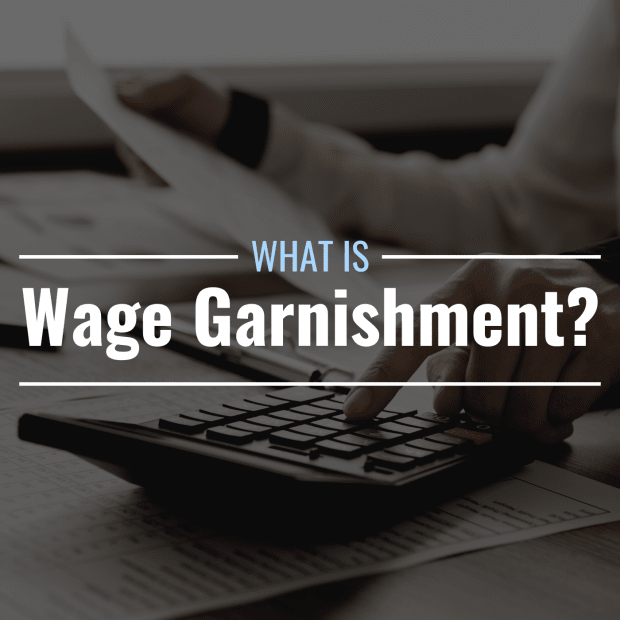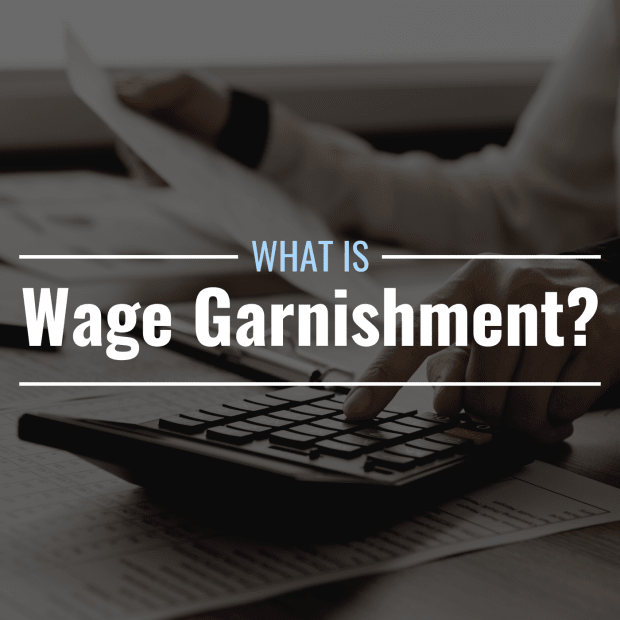What Is Wage Garnishment & How Does It Work?
Published 3:23 pm Thursday, June 29, 2023

- What Is Wage Garnishment & How Does It Work?

utah778 via Getty Images; Canva
What Is Wage Garnishment?
Wage garnishment is a court-ordered legal procedure that requires an individual’s employer to divert some portion of each paycheck toward a creditor to whom the individual owes money. In other words, it is a legal outcome that allows a creditor to automatically collect payments directly from a debtor’s employer out of that debtor’s wages every pay period.
Most commonly, wage garnishment is used to ensure payment of child support, alimony, court fees, or taxes, but it can be used to collect payments on other types of debt as well.
How Does Wage Garnishment Work?
Functionally, the garnishment process begins when an employer receives a document known as a “writ of garnishment” from a court or governmental entity. This document provides the information necessary for the employer to calculate how much should be withheld from each of the target employee’s paychecks.
It is then the employer’s responsibility to deduct, withhold, and send the proper amount to the appropriate creditor or government agency every time it goes through the payroll process. Employers that fail to adhere to the terms outlined in a writ of garnishment may be subject to fines and penalties.
The employee subject to garnishment does not need to do anything to facilitate the garnishment process; it is conducted between their employer and the relevant court or creditor before their paycheck ever reaches them.
What Percentage of a Person’s Income Can Be Garnished?
How much of someone’s income may be legally garnished varies depending on the type of debt in default. Typically, the maximum amount is based on an individual’s disposable income, or what they make after taxes.
Consumer Debt (Credit Cards, Medical Bills, Loans, Etc.)
For most consumer debts, the amount of an employee’s wages that can be garnished from each paycheck may not exceed 25% of the individual’s disposable income or the amount by which their weekly income exceeds 30 times the federal minimum wage of $7.25 per hour—whichever is lower.
Child Support & Alimony
For child and spousal support debts, up to 60% of an individual’s disposable income may be garnished (or 50% if they are supporting another child or spouse). If payments are more than 3 months late, however, an additional 5% may be added to this figure.
Federal Student Loans
For federal student loan debt, up to 15% of an individual’s disposable income may be garnished. Private student loan debt can be garnished at the same rate as other consumer debt (see above).
Taxes
The percentage of an employee’s disposable income that can be garnished to repay tax debt is calculated on an individual basis by the IRS and varies based on deductions and dependents.
What Kinds of Debt Can Cause Wage Garnishment?
Many types of unpaid debt can result in wage garnishment, but some of the most common include the following:
- Child and spousal support
- Medical debt
- Court fees
- Taxes
- Student loans
- Credit card debt
- Personal loans
How Can You Stop Wage Garnishment Immediately?
The simplest and most effective way to halt the wage garnishment process is to pay off the relevant debt in full. For most whose wages are being garnished, however, this is not necessarily a realistic option.
Second to paying in full, a debtor could contact their creditor and ask to work out a payment plan, although if wages are already being garnished via a court order, it is likely that a payment plan was already attempted and was not successful.
If an individual believes their wages should not be garnished due to a legal concern, they can return to court to challenge the garnishment with the help of a lawyer, but this challenge may need to be filed relatively quickly.
Alternatively, a bankruptcy filing can be used to halt the garnishment process, although this can have a significant impact on the filer’s credit score and ability to obtain future financing.
Before taking any steps to combat garnishment, an individual should consult with their lawyer, a financial professional, or a non-profit advocacy organization that specializes in wage garnishment.
Frequently Asked Questions (FAQ)
Below are answers to some of the most common questions employees have about wage garnishing that were not already covered in the sections above.
Can Wage Garnishment Affect Your Credit Score?
While wage garnishment itself does not directly impact an individual’s credit score, the unpaid debt the garnishment seeks to recover likely already has. Payment history is the largest determinant of an individual’s credit score, so if their wages are being garnished to repay a delinquent debt, it is likely that this is already reflected in their credit report.
Can an Employer Fire You Because Your Wages Are Being Garnished?
No, it is not legal for an employer to terminate or otherwise retaliate against an employee because their wages are being garnished. According to the Wage and Hour Division of the Department of Labor, “The wage garnishment provisions of the Consumer Credit Protection Act (CCPA) protect employees from discharge by their employers because their wages have been garnished for any one debt.”
How Common Is Wage Garnishment?
According to ADP, a payroll services company, around 7% of the employees on its platform are subject to wage garnishment.




